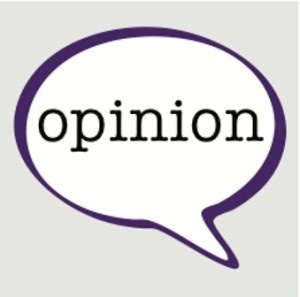Trigger warnings and Banned Books Week are both trendy on modern college campuses this year. The St. Thomas community has experimented with both movements. These trends reflect the two extreme ways of dealing with “what is considered offensive.” And they are both misguided.
On the one hand, trigger warnings are overly cautious.
Rather than worrying about whether material can be considered offensive, universities should worry about whether the material is worth teaching. The question should be, “Should students learn about the Holocaust?” not “How will students feel about learning about the Holocaust?”
With trigger warnings, professors warn their students that some of the material they are about to cover may be offensive. If these warnings hold any practical weight, then the university must allow students – upon hearing the warning – to opt out of hearing the “offensive” material.
But if a student is able to opt out of certain material in a class or certain subjects in the core curriculum, then apparently that material and those subjects weren’t worth discussing in the first place. Apparently learning those things wasn’t necessary to passing or graduating. But, then, why is everyone else required to learn those things?
Presumably, everyone is required to learn certain material because the teaching authority – the professors and administration – deem that material objectively worthwhile. So, whether you find it offensive or not, if you don’t take the material, you don’t meet what the experts judge as the objective standards.
On the other hand, Banned Books Week is overly callous about offense.
The motivation behind Banned Books Week has some foundation in reality. It is right to oppose authoritarian thought control or censorship.
With that said, Banned Books Week virtually celebrates offensiveness when it makes freedom a greater value or focus than literary truth or beauty. With the “Virtual Read-Out” events, for example, libraries sponsor the continuous public reading of banned books.
Rather than having signs saying, “These particular books are good to read for these particular reasons,” Banned Books Week encourages people to read books merely on the principle that the objective worth of the books is in doubt.
Presumably, books are banned because people are concerned about the objective worth of those books. Let’s find what is right or wrong about those concerns. If we think these people are wrong and one book or another has objective value, then let’s engage the debate rather than celebrating the fact that they are debatable.
This isn’t to say that debate on this objective level doesn’t occur. I merely mean to say that Banned Books Week as such – rather than supporting constructive debate – stifles it with its misplaced glorification of the banning rather than the truth.
Those who promote trigger warnings and those who celebrate Banned Books Week miss the point. If society’s primary concern is offense, then society will never resolve its disputes because everyone will have their own standard for offense.
Avoiding offense is important, but it is of secondary importance. If we first address the objective standards of truth and beauty, we will secondarily discover what is offensive – namely, what is untrue and ugly.
Elliot Polsky can be reached at pols4319@stthomas.edu.



















